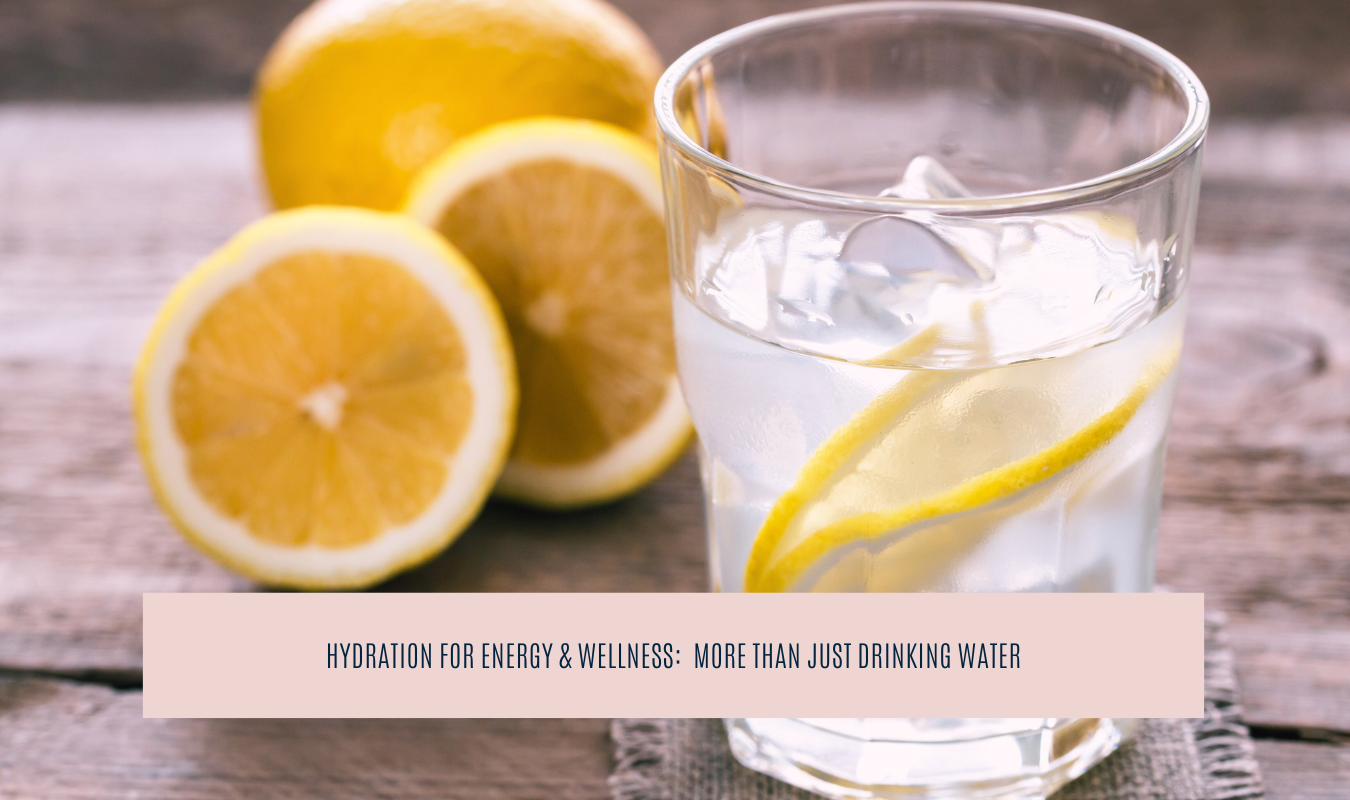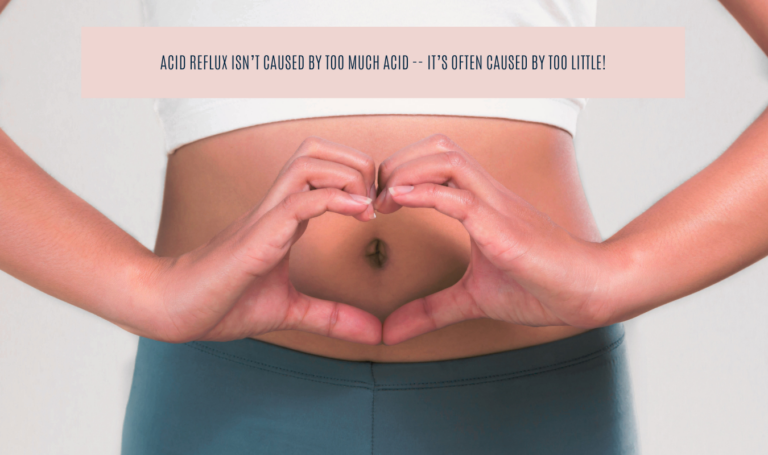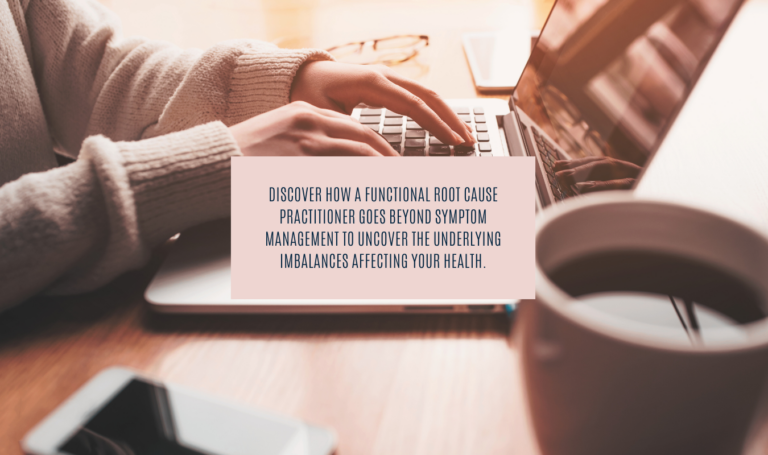Hydration for Energy & Wellness: More Than Just Drinking Water

We’ve all heard it before—“Drink more water!” But what if I told you that hydration is about more than just drinking plain water? A whole-body approach to health looks beyond just how much water you drink and focuses on cellular absorption, mineral balance, and overall body function.
In this post, we’ll break down why being hydrated is more than just drinking water, the signs of dehydration, and how to hydrate in a way that actually nourishes your body.
Signs You Might Not Be Hydrated (Even If You Drink a Lot of Water!)
Many people assume they’re well-hydrated just because they drink a lot of water. But hydration isn’t just about the quantity of water you drink—it’s about how well your body absorbs and utilizes that water.
Signs of dehydration beyond thirst:
- Fatigue or brain fog
- Headaches
- Dry skin or chapped lips
- Muscle cramps
- Constipation
- Sugar or salt cravings
- Dizziness or low blood pressure
If you experience any of these symptoms, your body could be struggling to hold onto the water you’re drinking.
The Hidden Problem: How Drinking Plain Water Can Dehydrate You
It sounds counterintuitive, but drinking too much plain water—especially without minerals—can actually flush out electrolytes like sodium, potassium, and magnesium. These minerals are essential for hydration at the cellular level and help regulate nerve function, muscle contractions, and even mood.
When your electrolyte levels become diluted, you may experience symptoms of dehydration even if you’re drinking enough water.
Hydration & Energy: Why Proper Hydration Keeps You Energized
One of the biggest benefits of proper hydration is increased energy levels. Dehydration slows down enzyme activity in the body, leading to sluggishness and fatigue. Water is essential for transporting oxygen and nutrients to your cells, allowing them to produce energy efficiently.
If you often feel tired, especially in the afternoon, it could be due to poor hydration or electrolyte imbalance rather than lack of sleep. When your body is properly hydrated, your circulation improves, your muscles receive adequate oxygen, and your metabolism functions optimally—resulting in natural, sustained energy without relying on caffeine or sugar.
How to Hydrate the Right Way
So, how can you ensure that your body is properly hydrated and absorbing the water you drink?
Start Your Day with a Hydration Boost
Instead of reaching for coffee first thing in the morning, start your day with a glass of mineral-rich water. Adding a squeeze of fresh lemon juice and a pinch of high-quality sea salt provides essential electrolytes and supports digestion. A splash of coconut water can also add extra hydration benefits.
Incorporate Electrolytes
For optimal hydration, it’s important to replenish electrolytes throughout the day. You can do this naturally by adding a small amount of sea salt to your water, drinking coconut water, or using trace mineral drops. Unlike sugary sports drinks, these natural sources provide hydration without artificial ingredients that can deplete your body further.
Hydrate Through Food
Water isn’t the only source of hydration—your diet plays a huge role as well. Fresh fruits and vegetables, such as cucumbers, watermelon, leafy greens, citrus fruits, and berries, contain high amounts of water along with essential vitamins and minerals. Eating these hydrating foods helps your body retain fluids more effectively.
Support Your Detox Pathways
Proper hydration plays a key role in digestion and detoxification. If you’re constipated, bloated, or struggling with sluggish detox pathways, increasing your intake of hydration + electrolytes can be a game-changer. Drinking a glass of water before meals (rather than during) supports digestion, while herbal teas like ginger, dandelion, and peppermint offer additional hydration and gut health benefits. Staying well-hydrated also helps fiber do its job in keeping your digestion regular.
Move Your Body and Breathe Deeply
Hydration isn’t just about what you consume—it’s also about circulation. Movement and deep breathing help regulate hydration at a cellular level. Walking, stretching, and even simple breathwork exercises can improve oxygenation and lymphatic drainage, allowing fluids to move efficiently throughout the body. Try this simple breathing technique: inhale deeply for four seconds, hold for four seconds, and exhale for six to eight seconds. This not only supports hydration but also calms the nervous system and improves overall well-being.
Final Thoughts: Hydration is a Whole-Body Process
True hydration isn’t just about drinking more water—it’s about how your body absorbs and utilizes fluids. By focusing on mineral balance, hydrating foods, gut health, and movement, you can improve your hydration at a cellular level and experience more energy, mental clarity, and overall vitality.


